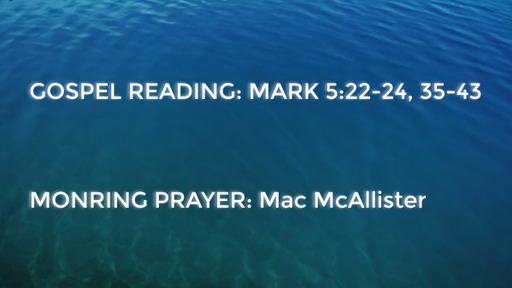The Unexpected Jesus

Sermon • Submitted • Presented • 39:39
0 ratings
· 67 viewsFiles
Notes
Transcript
Handout
Matthew 9:1-17
Matthew 9:1-17
Dallas Willard of a pilot practicing high speed maneuvers.
“she turned the controls for what she though was a steep ascent – and flew straight into the ground. She was unaware that she had been flying upside down.[1]
[1] Dallas Willard, The Divine Conspiracy: Rediscovering Our Hidden Life in God (San Francisco, CA.: Harper San Francisco, 1998), 1-2.
1. vs 1-8 Jesus Reveals God’s Heart for His people
ancient Jews regarded the following thee types of miracles to be Messianic:
1. The cleansing of lepers.
2. The casting out of demons that caused muteness.
3. The healing of blindness
Jesus says, “Have courage, son, your sins are forgiven.”” (Matthew 9:2HCSB).
Jesus, having ‘seen’ the faith of the paralytic and those who brought him, now sees into the mind of his critics – the scribes
– “But perceiving their thoughts, Jesus said, “Why are you thinking evil things in your hearts? For which is easier: to say, ‘Your sins are forgiven,’ or to say, ‘Get up and walk’?” (Matthew 9:4–5, HCSB)
Previous crowds had come to Jesus, bringing their sick and afflicted anticipating that He would simply touch them or speak to them and healing would occur
had this man sinned in some way that caused his paralysis?
Sin has impacted every sphere of life. Illness in itself is the result of the original sin of Adam and Eve.
Jesus claims the authority of God Himself to bring the power of forgiveness into the lives of all who exercise faith
But so you may know that the Son of Man has authority on earth to forgive sins”—then He told the paralytic, “Get up, pick up your mat, and go home.” And he got up and went home.” (Matthew 9:6–7, HCSB)
2. vs 9 – 13 Jesus Restores dignity to overlooked and marginalized people
One source suggests that “taxes were exorbitant even without overcharging; many contend that those who paid both taxes and tithes were paying between 30 and 40 percent….” [1]
[1] Keener, C. S. (2009). The Gospel of Matthew: A Socio-Rhepletorical Commentary (p. 293). Grand Rapids, MI; Cambridge, U.K.: Wm. B. Eerdmans Publishing Co.
first-century Judaism used the term [sinner] in at least two specialized senses: (1) Am-ha-aretz (“the people of the land”), i.e., the vast majority of Jews who did not follow the stricter sectarian regulations of the Pharisees;
and (2) particularly grievous sinners—the most criminal and disreputable types of people in society. Here “sinners” carries this second sense, since Jesus and his disciples themselves were am-ha-aretz and would have provoked no objection simply by eating with their own kind.[1]
[1] Blomberg, C. (1992). Matthew(Vol. 22, p. 156). Nashville: Broadman & Holman Publishers.
“For I desire loyalty and not sacrifice, the knowledge of God rather than burnt offerings.” (Hosea 6:6, HCSB)
Where many saw Matthew and his associates as less than significant, unimportant and irrelevant, Jesus saw those who needed healing spiritually as well as physically,
3. vs 14-17 Jesus Renovates the status quo
. However, as these followers of John noted, not only did Jesus share meals with ‘tax-collectors and sinners’ He actually ATE with them!
Matthew 6:16–18 (HCSB)
“Whenever you fast, don’t be sad-faced like the hypocrites. For they make their faces unattractive so their fasting is obvious to people. I assure you: They’ve got their reward! But when you fast, put oil on your head, and wash your face, so that you don’t show your fasting to people but to your Father who is in secret. And your Father who sees in secret will reward you.
a). wedding guests don’t fast while attending the wedding feast!
b/c). unshrunk cloth/new wineskins
When the lame man corralled his friends to carry him to Jesus, they expected Jesus to heal him.
As Matthew sat at his desk or table processing payments, figuring out which landowners and business people still needed to pay their taxes, he didn’t expect to leave it all and follow Jesus.
John’s disciples, likely a little grief stricken and a little lost without their leader, expected Jesus to help them understand why all the things that were once important seemed to have lost their significance.
They didn’t expect to be challenged as to the very patterns of their lives.
Jesus, however, is in the business of challenging our expectations.
Let me invite us to let go of our expectations. What Jesus wants to do may very well not fit our wants.
What Jesus can do may beyond what we have the money in the bank to do. What Jesus is up to in our lives may confuse and upset those closest to us…
– the paralyzed man went home physically AND spiritually transformed;
Matthew went from being an outcast and a castoff to one whom God entrusted to write for us an account of Jesus’ life;
the disciples of John, demoralized and discouraged, were given an opportunity to discover just how fresh and new following Jesus can be
